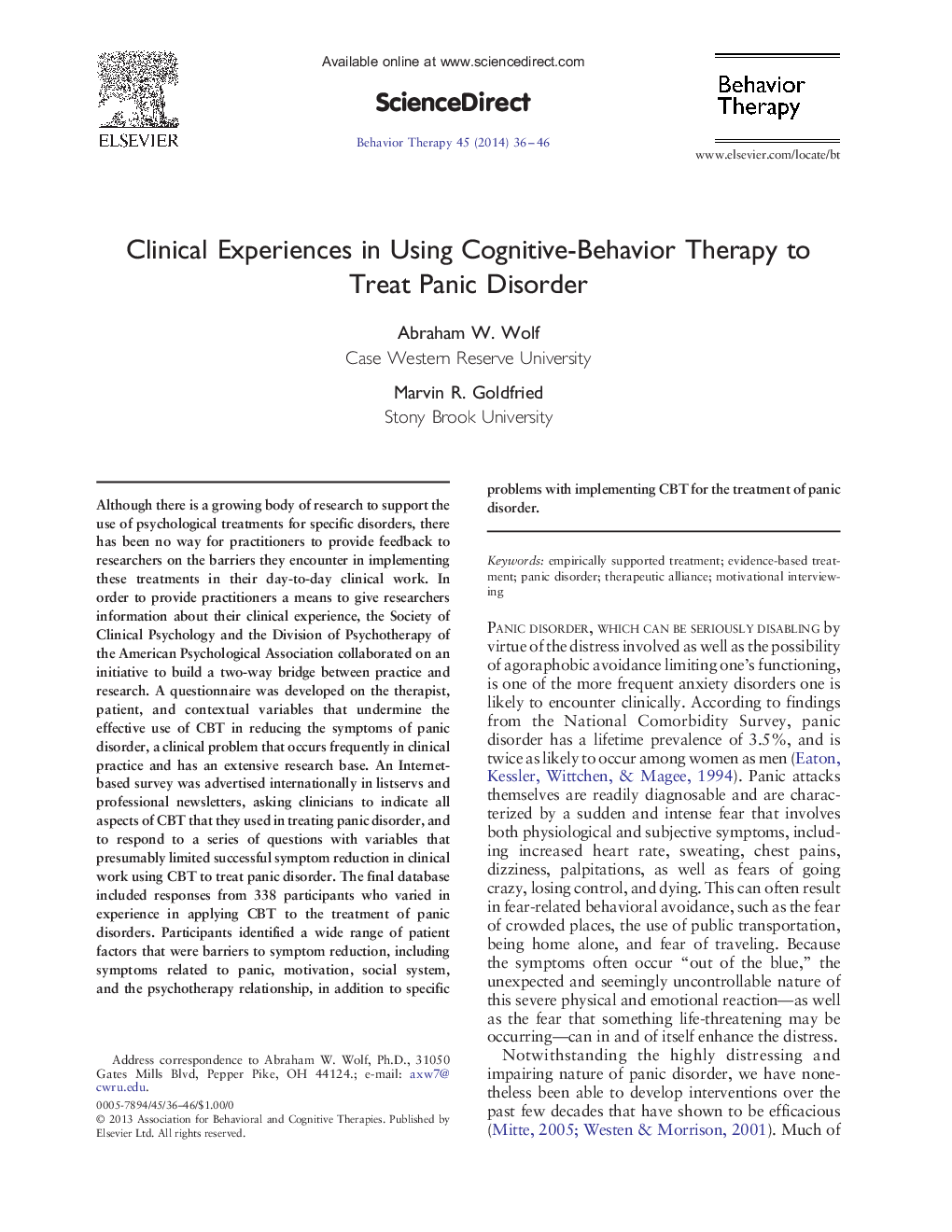| Article ID | Journal | Published Year | Pages | File Type |
|---|---|---|---|---|
| 901240 | Behavior Therapy | 2014 | 11 Pages |
•Survey data collected from a group of cognitive behavioral therapists•Determined variables that limit symptom reduction using CBT for panic disorders•Wide range of patient factors identified•Implications for communication between researchers and practitioners
Although there is a growing body of research to support the use of psychological treatments for specific disorders, there has been no way for practitioners to provide feedback to researchers on the barriers they encounter in implementing these treatments in their day-to-day clinical work. In order to provide practitioners a means to give researchers information about their clinical experience, the Society of Clinical Psychology and the Division of Psychotherapy of the American Psychological Association collaborated on an initiative to build a two-way bridge between practice and research. A questionnaire was developed on the therapist, patient, and contextual variables that undermine the effective use of CBT in reducing the symptoms of panic disorder, a clinical problem that occurs frequently in clinical practice and has an extensive research base. An Internet-based survey was advertised internationally in listservs and professional newsletters, asking clinicians to indicate all aspects of CBT that they used in treating panic disorder, and to respond to a series of questions with variables that presumably limited successful symptom reduction in clinical work using CBT to treat panic disorder. The final database included responses from 338 participants who varied in experience in applying CBT to the treatment of panic disorders. Participants identified a wide range of patient factors that were barriers to symptom reduction, including symptoms related to panic, motivation, social system, and the psychotherapy relationship, in addition to specific problems with implementing CBT for the treatment of panic disorder.
